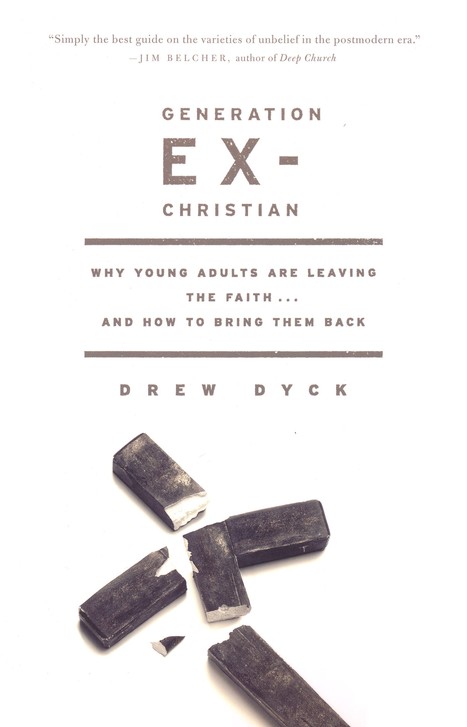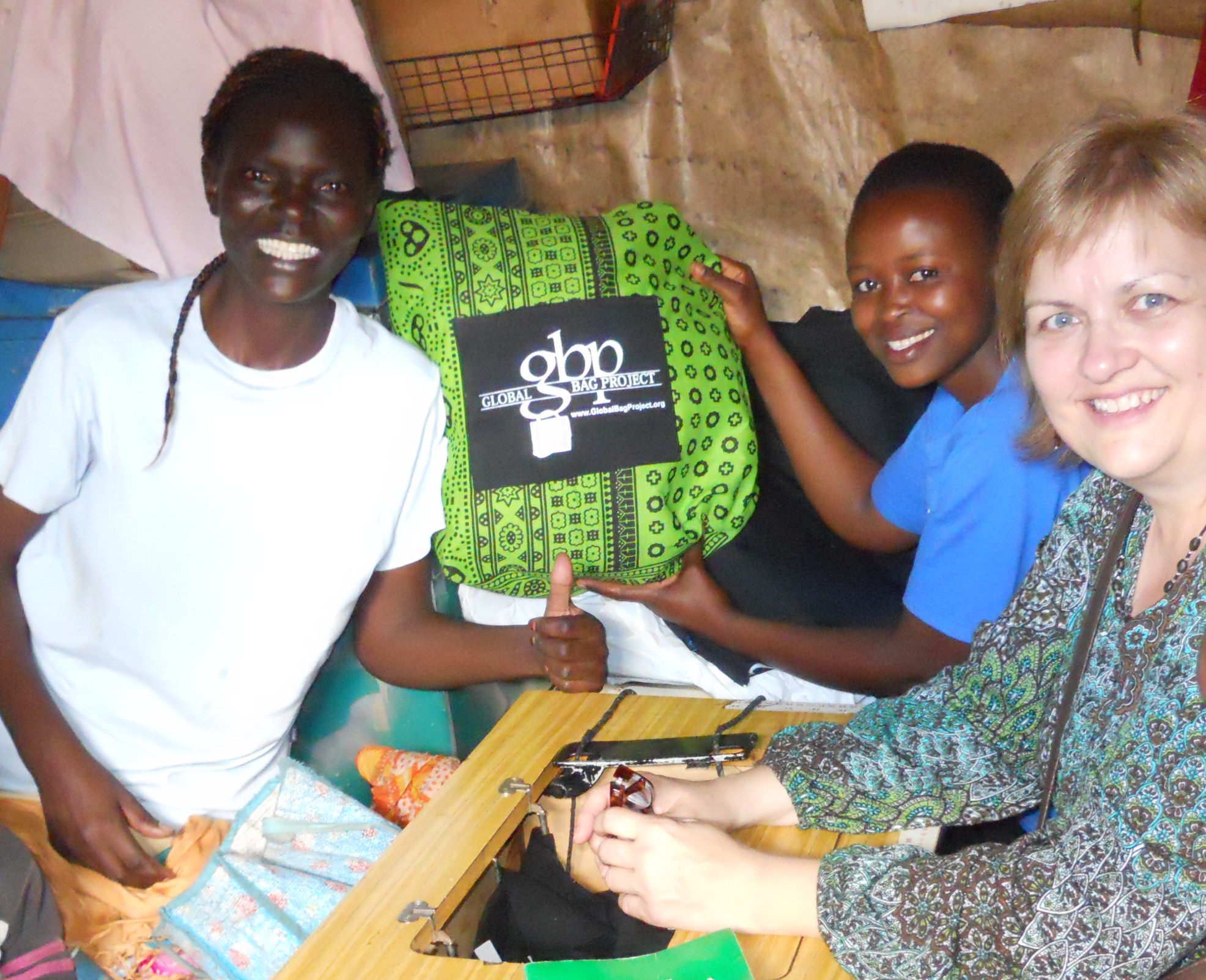Visiting the Atheists Club
WOur friend Drew Dyck, an editor at Christianity Today,
writes about visiting the atheists club in Wheaton, Illinois as part of
his interview process for his new book, Generation EX-Christian: Why Young Adults Are Leaving the Faith … And How to Bring Them Back.
Now,
I admire this. My tendency is to avoid the opposition however I can and
only deal with them when I am caught in unavoidable confrontations.
After checking out the group’s Web site (with messages like “looking to
meet like-minded individuals in a nation that is cuckoo for
Christianity”), Drew discovered what he terms a “whole underworld of
doubt.”
This excerpt (quoted with the author’s permission) is his account about attending an atheists club:
*
* * * * *
* * * * * *
The next meeting would be at a pub less than a mile from my
house. I showed up feeling a little jittery. What was I—a
Bible-believing Christian since my youth—going to say to atheists? How
would they react when they learned that I was a Christian? Would it be
all-out war? I intended to observe, ask questions, and then keep my
mouth shut … but I’m not very good at keeping my mouth shut. And some
of them would be expecting me. In my online profile I’d written that I
was a “Christian journalist writing a book about ex-Christians…”
I walked over and introduced myself to the young man opposite the table from me. He shook his head.
“I saw your profile. I know who you are.” He let out a mock groan. “Why did I have to sit on this end of the table?”
Not exactly the reception I had hoped for.
Before
I could respond, a gray-haired woman smiled warmly in my direction. “I
don’t think I’ve seen you here before. What’s your name?”
“I’m Drew,” I said cheerfully. “I work just across the street at Christianity Today.”
Her brow furrowed. “When did you become an atheist?”
“I didn’t. I’m a Christian.”
The
word “Christian” seemed to hang in the air. The conversations around
the table died, and I felt twenty-five pairs of eyes fasten upon me.
* * * * * * * * *
*
* * *
This encounter is a marvelous
example of the way we all see the world from the place where we stand.
That is an axiom that applies to everyone. Few of us take the effort to
consider the other side; too many of us don’t even recognize that there
is another side. If we enter
into any kind of dialogue it is for the sole purpose of proving the
other guy (or gal) wrong. Then we demonize the opposition. Sound
familiar?—this attitude is a map of our current culture wars.
Drew
Dyck makes the point that the new atheism is aggressive,
confrontational, angry and militant. “They specialize in dredging up
old arguments against God’s existence and peddling them to a credulous
public.” Despite this (and knowing how nasty conservative Christians
can become when they feel threatened), I have been given an interesting
assignment regarding one of the most vocal atheists of our day,
Christopher Hitchens, whose commentaries and literary criticism I often
enjoy in The Atlantic or other Eastern establishment periodicals. Among an endless list of works, Hitchens is the author of God Is Not Great. In The Missionary Position: Mother Teresa in Faith and Practice,
he disclaims Mother Teresa as a fraud and wishes for her to go to a
place he ardently does not believe in. This aside, much of Hitchens’
protests against the church make me feel like a kindred spirit. Often,
I read his stuff, admire the intellectual analysis and because I am
fond of contrarians, I find myself thinking, Well, I feel exactly the same way. That really bugs me as well. Sometimes he and I are mad about the same things!
What
I have been left pondering, however, in this distant juxtaposition of
opinions is: Why, given the same irritants, have I landed in the camp
of the rabid believers and he in the camp of militant
disbelief?
This kind of oxymoronity (in myself
and in others) always makes me laugh, and I have often found myself
laughing while reading Hitchens—not in scorn, but in delight at having
discovered a fellow malcontent, who incongruously happens to be in the
other camp. Why don’t you pray for Christopher Hitchens? came the still soft inner word. Not, Pray for his conversion; not, pray that he will stop offending me, his Creator. Just something like, You like him; why don’t you pray for him?
So
I did what was in my heart to do—I attended, albeit at a distance, the
atheists club. At bedtime (when I am trying to stay awake until 9:00
p.m.), I began to read his collection on various topics first published
in national magazines, Love, Poverty and War: Journeys and Essays.
So far, I’ve read reviews of biographies written about Rudyard Kipling,
a reconstruction about popular attitudes toward Churchill, other
reviews on books about Trotsky, thoughts about the pertinence of
Huxley’s Brave New World, Graham Greene’s body of literature and Evelyn Waugh, the author of Brideshead Revisited.
I
attempted to see the world not from where I stand. Authentic prayers
(the inner nudge, though gentle, is always persistent) for Christopher
Hitchens demanded that I attempt to see the world from where he stands.
I
noticed an ad, maybe in that progressive rag The Nation, in which
Zondervan Publishers pushed a book by Peter Hitchens, Christopher’s
brother, titled The Rage Against God: How Atheism Led Me to Faith.
This all had occurred of course, before my prayers began their feeble
passage heavenward as did the cancer of the esophagus national
media reports he has contracted. “Stage-four cancer,” he told Steve Kraft in a 60 Minutes
interview two weeks ago (which I happened to catch while waiting for
David to finish getting ready for a concert we were attending). “There
is no stage five.”
Interestingly, I still don’t feel led to
pray for his conversion—perhaps I don’t believe that will happen, given
his position of adamant disbelieve. I just pray for the man. I pray
suspecting that he protests too much. I pray because I delight in much
of what he writes. Isn’t it ironic that the God who Hitchens proclaims
does not exist so gently and mercifully reminds me to hold him tenderly
in my heart?
Of course, being a leader of a cadre of publishing-industry atheists (more of Hitchens’ titles include The Portable Atheist: Essential Reading for the Nonbeliever and God: The Failed Hypothesis: How Science Shows That God Does Not Exist—you
get the point), he certainly isn’t going to recant and consider the
state of his soul at this time in his career (life). And he must know
he is dying. But I am praying for him. If I can laugh at the
man—certainly he can’t be serious; he’s over the top with an ingenious
marketing scheme for attracting reviews and readers—then God must see
the humor in his “there is no God/I hate him” incongruity (and the
offending further incongruity of a brother coming to faith because of
militant atheism). Irony upon irony; they are belly-gripping in their
dead seriousness.
So, David dragged me away from the 60 Minutes
interview, not wanting to be late to the chamber music concert, saying
I could catch the audio broadcast on WBBM radio in the car (we were at
least ten minutes early). “Who is Christopher Hitchens?” my husband
inquired. I explained. And we listened, just in time for me to hear
Hitchens tell his interviewer that one of the things that has touched
him deeply are all the messages and e-mails telling him that people are
praying for him.
Obviously, I am not the only one a loving gentle God is nudging to pray.
Oh how hard it is, atheists and believers alike, to view the world from where the other guy stands.
Karen Mains
Notices
FOCUS GROUP: Women's Cycle of Life
Are You Interested and Can You Help Us? April 7-8, 2011
The Women’s Cycle of Life is a remarkable teaching series used to
introduce women across the world (most of whom are poor, uneducated and
illiterate) to issues relating to their own bodies. The lessons on
nutrition, anatomy and physiology, hygiene, prenatal care, conception,
etc. are seamlessly interwoven with Scripture in such a way that many
adult students become Christians.
Charlene McWilliams,
director and the originator of Women’s Cycle of Life, will be in
Chicago, and we will be running four focus groups with people concerned
about helping women lift themselves out of poverty. The purpose of
these groups is to invite feedback so that the two-hour presentation
will be the best we can give to raise friends and donors for this
international outreach, which is now in 80 countries but woefully
underfunded.
According to development experts, educating
women is one of the primary tools for lifting whole countries out of
poverty. Kofi Annan, past UN Secretary-General said, “It is
impossible to realize our goals while discriminating against half the
human race. As study after study has taught us, there is no tool for
development more effective than the empowerment of women.”
We
have room for 8-12 concerned people at each session: Thursday, April 7
at 10:00 a.m. and at 7 p.m., and Friday, April 8 at 10:00 a.m. and 2:00
p.m. This will be held at the Mainses’ home in West Chicago. Contact
Karen at karen@hungrysouls.org
to let her know you are coming or to ask questions and to receive her
address. Decide soon, as 100 invitations will be dropped in the mail
this week.
Global Bag Project Financial Report
Jecinter and Carol, two women from Kibera who sew GBP bags
We are still working out our financial systems in the Global
Bag Project division, but the initial reports indicate that from
donations or from the sale of bags we raised $45,442, some $20,789 of
which went to our pilot project in Nairobi, Africa. That is 46% of our
total proceeds. In addition, there were start-up costs in the U.S. and
in the Kenyan office, for our first full year of operations that will
not be in our ongoing budgets in this financial cycle.
We
have suffered from the typical cash-flow difficulties of new
businesses—women who want more work but a Stateside office that does
not always have enough cash on hand. Consequently, our goal is to sell
a minimum of 100 bags a month in the States to maintain the seven
bag-makers who are sewing for us now. Then, we want to raise the sales
to 200 bags a month to provide steady work and to also take on
additional bag-makers who are trained seamstresses eager to begin.
The
Kenyan GBP office is now looking at two marketing plans that would
boost in-country sale of the bags and other hand-sewn projects. Under
Mary Ogalo’s leadership, they have formed a board, set up training
systems, determined the kinds of women who will become bag-makers,
applied for NGO (non-government organization) status, and written a
constitution.
Here’s How You Can Help
1. Order Mother’s Day gift shopping bags over the Web site www.globalbagproject.org.
2. We have a few computer bags
(a new product designed by our project manager in Kenya). They are
quilted and great for toting laptops. We had 10 bags ready for shipping
in Africa, but Canadian women visiting the Project swooped them up!
3. Special order gift bags or wine bags with your corporate logo imprint
for Christmas or year-round giving. We will need half the payment up
front in order to wire overseas to purchase supplies and several months
lead time. Contact Carla Boelkens at carla@globalbagproject.org.
4. Hold a home Party in a Box.
Before the 2010 Christmas season, a home party with 16-24 guests raised
$1000 to $1200 each. We will mail you everything you need to have a
bag-sales party.
5. Figure out a way for us to do a
presentation in corporate settings (school teacher’s lounges,
presentation lunches for office staffs and coffee breaks, etc).
6.
Donate, through your extended family, your book club, or any small
group, $300 to provide industrial-strength sewing machines with
dual power controls. A check from a friend in Phoenix, AZ just arrived
to underwrite three sewing machines. What a joy to provide these for
women eager to lift their families out of poverty. Send any checks to
the Global Bag Project/ Box 30/ Wheaton, IL 60187.
7.
Underwrite our Internet marketing optimization plan. Six people stepped
forward before the holidays and gave or pledged $360 ($30 x 12 months).
This matched the loan of $300 a month from a foundation grant to boost
our Internet Web site traffic. We could still use another four donors
to finish the matching pledge. That would total $1440 in outright
upfront gifts or pledges. Internet sales are a strategic part of our
marketing plan.
8. Donate air mileage
points if you are not going to use them. The next few years will
require overseas travel as well as travel in the States. Some airlines
allow you to donate your unused mileage points to charitable
organizations. We would greatly appreciate this if you can help us out.
Let Carla Boelkens know if you have extra travel miles.
Reminder!
The Soulish Food e-mails are
being
posted biweekly on the Hungry Souls Web
site. Newcomers can look that over and decide if they want to
register on the Web site to receive the biweekly newsletter. You might
want to recommend this to friends also. They can go to www.HungrySouls.org.
|
|

Karen
Mains
“Isn’t it ironic that
the God who Christopher Hitchens proclaims does not exist so gently and
mercifully reminds me to hold him tenderly in my heart?”
BOOK CORNER

Generation EX-Christian:
Why Young Adults Are Leaving the Faith … And How to Bring
Them Back
By Drew Dyck
Has a young adult in your family left the faith? Oh, not just
stopped attending church but stepped firmly into the camp of
non-belief. And somehow, everything you say and do seems to be the
wrong word and the wrong action. Drew Dyck does an excellent job of
defining categories of disbelief in contemporary life.
One
of the excellent capacities of this book is that the author has
conducted conversations, entered into dialogues with those who have
made up their minds that they are no longer Christian. This in itself
is a good template for those of us who have friends and family we love
who have abandoned their earlier belief stance. Sections of the book
are devoted to understanding the Postmodern Leaver, the Recoilers, the
Modern Leavers, Neo-Pagans, the outright Rebels and the Drifters. The
last chapter is a look at how to welcome these wanderers home
again.
From the back-cover copy, Sam Rainer, president of Rainer Research and co-author of Essential Church?: Reclaiming a Generation of Dropouts,
writes, “Every person who leaves the church has a story—it’s often
complicated and interwoven with a myriad of life experiences. You will
recognize many of Dyck’s portraits. They are people in your life—your
neighbors, family, and friends. This book will help you find ways to
journey with them and guide them back to the one, true story that
matters most.”
How best to engage the prodigal in your life?
Dyck, an editorial manager of the ministry team at Christianity Today,
provides a compassionate handbook as to how to see the world from the
other person’s place. Hungry Souls highly recommends this as an addition to your library.
|


